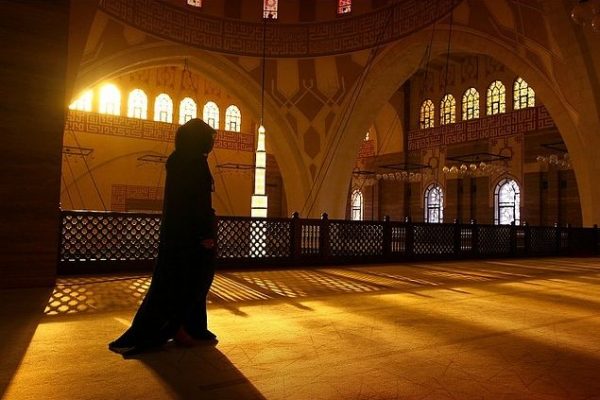France should not have the power to police Muslim women’s bodies in such an Islamophobic manner. It continues to marginalise young Muslim women, which panders to right-wing voters and Islamophobes.
Banning the Hijab in France is Another Islamophobic Way to Marginalise Young Muslim Women
France should not have the power to police Muslim women’s bodies in such an Islamophobic manner. It continues to marginalise young Muslim women, which panders to right-wing voters and Islamophobes.
If France’s anti-separatism bill comes into law, any girl or woman under the age of 18 will be not be allowed to wear the hijab in public. In addition, hijabi mothers will not be allowed to accompany their children on school trips. And women wearing burkinis will also be banned from public swimming pools.
On 30th March, the French Senate voted in favour of including the “prohibition in the public space of any conspicuous religious sign by minors and of any dress or clothing which would signify an inferiorisation of women over men” in a bill officially titled “Strengthening the respect of the principles of the Republic.” The bill is also known as the ‘anti-Muslim’ bill.
On Wednesday, the French Senate approved an amendment to ban prayers at universities. And in November 2020 the government also proposed to ban Muslim parents from home-schooling their children and threatened to jail parents for six months if they do not comply. It’s quite clear that France is cruelly using its own education system in a tactic to further ostracise the French Muslim community by targeting its women.
Following the shooting and arson attack against a mosque in Bayonne, France, in October 2019 President Macron said at the Choose La ReUnion Summit: “Whether someone wears a hijab in a public space is not my business.” But now, Macron has made it his business.
France’s unhealthy and ignorant obsession over how Muslim women choose to cover their own bodies is problematic and Islamophobic. These proposed bans are not fair, as they do not specifically apply to other religions that choose to cover their hair including Christian nuns who wear habits. Since 2004, it has been illegal for students in France to wear a hijab in public schools.
The French government needs to stop assuming that all Muslim women are being coerced into wearing hijabs. And there is nothing empowering about taking a Muslim woman’s right away to cover her hair.
French President Emmanuel Macron’s government believes all of these restrictions against Muslims will combat so-called “Islamist separatism.” In April 2011, France banned any veils covering the face, which includes the niqab. This ban still continues despite it being compulsory for everyone in France to wear a mask due to the coronavirus pandemic. It is another huge double standard.
The amendments still need to pass through the National Assembly before coming into law. But it’s disturbing how the hijab could potentially be criminalised and the innocent women who choose to wear it will suffer. Many people have taken to social media with the trending hashtag #handsoffmyhijab about how Islamophobic, misogynistic and oppressive these proposed laws are.
Many also took to Twitter to discuss the deeply Islamophobic nature of this new law:
Age to consent to sex in France: 15
Age to consent to hijab: 18
Let that sink in. It isn't a law against the hijab. Its a law against Islam. #Handsoffmyhijab #FranceHijabBan— Manar منار (@RockThrowA) April 4, 2021
French senate has voted that no girl under the age of 18 can wear hijab in public and that no Muslim mothers in hijab can be on school field trips.
An absolutely trash & fascist state. pic.twitter.com/01oCyDJKgK
— Sana Saeed (@SanaSaeed) March 31, 2021
At the most basic level, France’s ban on hijabs and niqabs on Muslim girls under 18 and mothers attending school trips w/kids is Islamophobic, patriarchal, &misogynistic. No matter how you slice it, this is about controlling girls & women’s bodies. This is anti-bodily autonomy.
— Treva B (@divafeminist) April 3, 2021
France should not have the power to police Muslim women’s bodies in such an Islamophobic manner. It continues to marginalise young Muslim women, which panders to right-wing voters and Islamophobes.
Muslim women who reside in Europe do not need to be rescued by Western culture. Contrary to popular belief, we enjoy most of what it has to offer us. But enforcing women to take off a simple head cover, which symbolises a Muslim woman’s religious identity and connection to her faith, is far from civilised.
The French government’s pervasive desire to discriminate against Muslim women needs to stop. They should not be allowed to eliminate Muslim women’s autonomy. The argument to ban the hijab needs to be scrutinised by everyone. In particular, all feminists need to exude the same energy and support they would give to a woman that does not want to cover her hair.
France’s anti-separatism bill will affectively legalise Islamophobia. It aims to fight against the ‘inferiorisation of women’ – which they believe takes away Muslim women’s dignity. Ironically, however, the French government seems to be doing that on its own.





